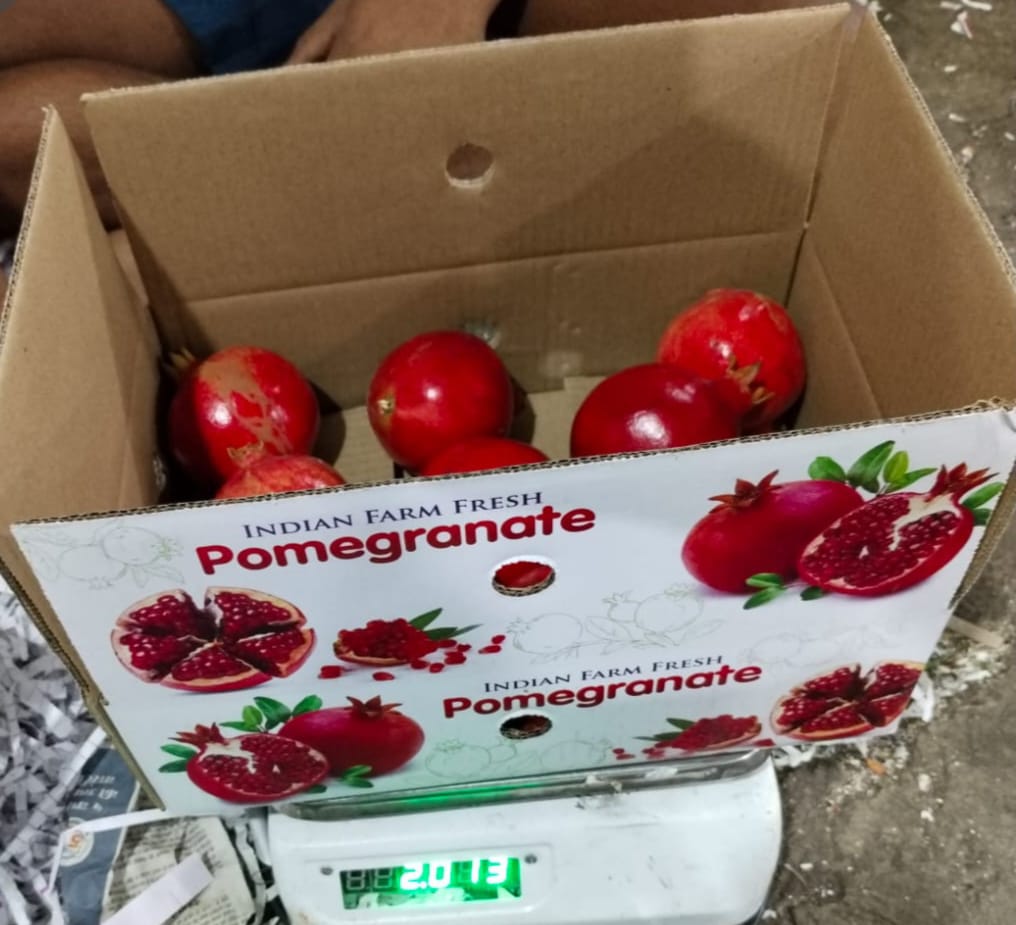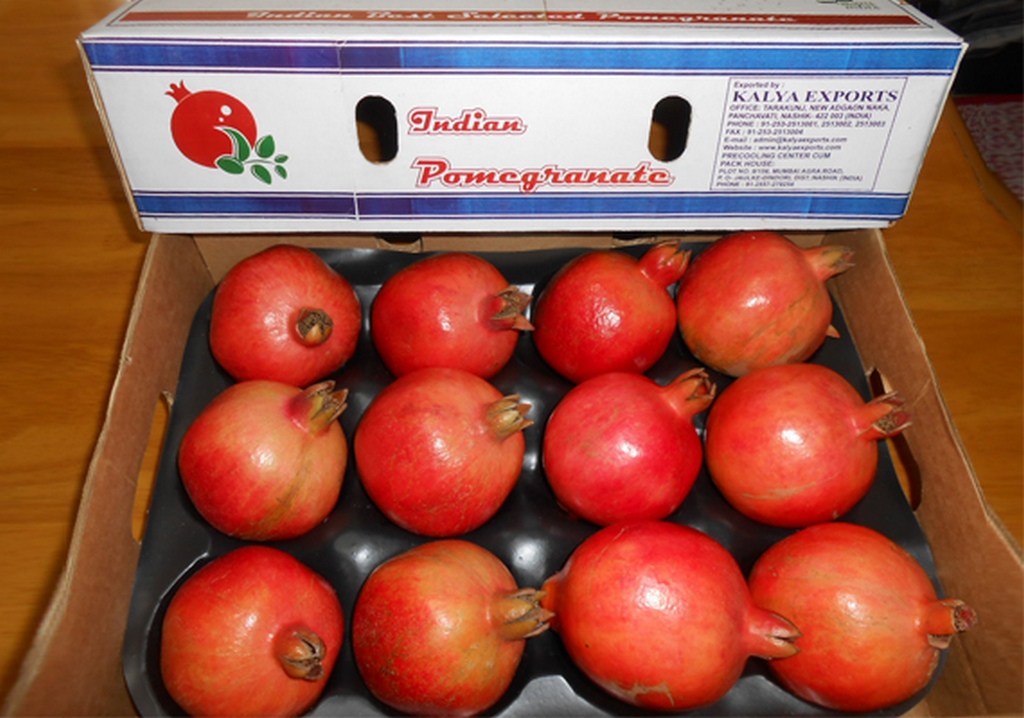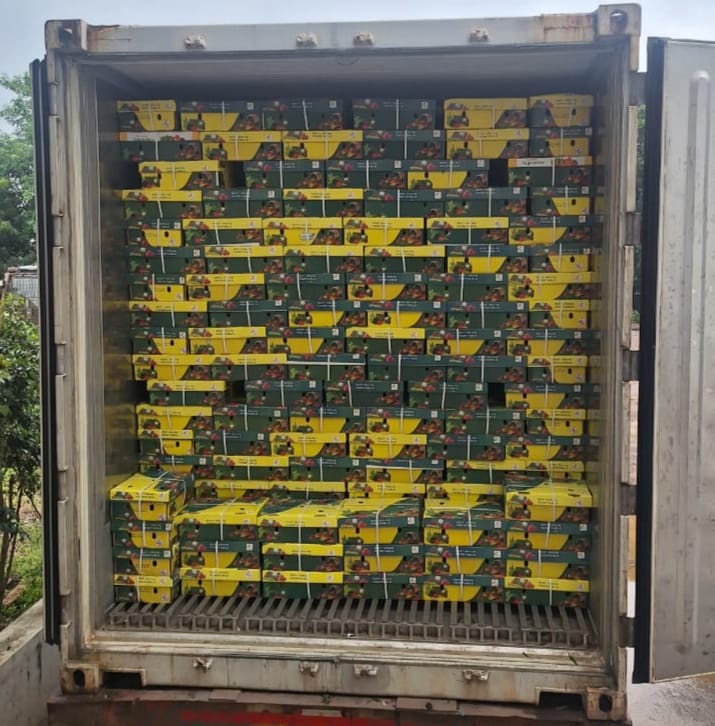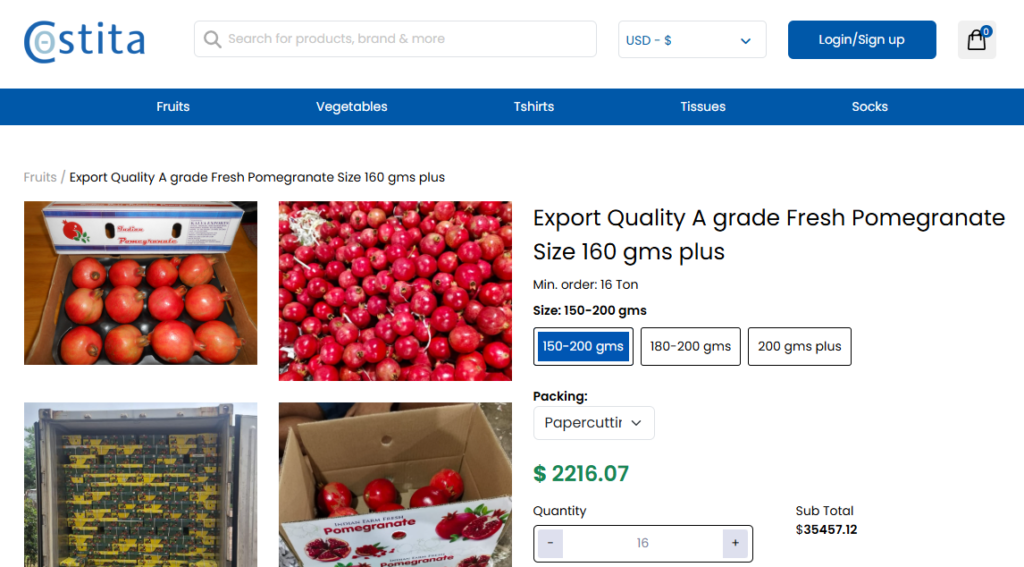
Importing Pomegranate in Bulk: A Comprehensive Guide
Are you ready to step into the thriving market of importing pomegranate in bulk? With the potential to earn over $19,000 from just one weekly container, this business opportunity is not only enticing but also highly lucrative. At Costita Global Chain Limited, based in Hyderabad, we specialize in managing every aspect of pomegranate import across India and other countries. Our unmatched expertise in sourcing and logistics ensures a seamless and profitable trading experience for businesses seeking to invest in pomegranate wholesale for import. By strategically sourcing the best-quality pomegranate in bulk, traders can gain a competitive edge in this lucrative industry. This comprehensive guide provides valuable insights into this rewarding venture, drawn from years of successful operations.
Moreover, importers consider pomegranates one of the most dependable fruits for trade due to their long shelf life of up to three months under refrigeration and minimal spoilage during transit. These qualities make bulk pomegranates a preferred choice in the markets of the Gulf, South Asia, and Europe. In addition, health-conscious consumers continuously drive steady demand in the wholesale market, as they highly value pomegranates for their rich antioxidant content and versatile culinary applications.
Furthermore, India is the largest global producer of premium-quality pomegranates in bulk, which gives traders a significant advantage when sourcing from the country. Maharashtra leads the production landscape, followed by Gujarat and Rajasthan, with renowned hubs like Sangola, Ahilya Nagar, and Baramati producing some of the finest pomegranate available. These key production areas support the steady growth of the pomegranate import and wholesale market, ensuring reliable supply to meet diverse international demands. The ability to handle pomegranate import efficiently is crucial for scaling operations and meeting the demands of bulk buyers worldwide.
Understanding regional market preferences is critical for success in pomegranate import. Below is a breakdown of requirements for major markets:

Regardless of the destination, to import pomegranate in bulk or for pomegranate wholesale delivery, these universal benchmarks must be met to ensure their acceptability in international markets:
The processing journey is meticulously designed to ensure quality retention for importing pomegranate in bulk:


3. Cold Storage: Workers send packed boxes to cold storage, where they pre-cool them at 7–8°C for eight hours to maintain freshness. The pre-cooling process prevents moisture loss and preserves the fruit’s natural firmness and flavor during transit for pomegranate import practices.
4. Loading for Export: Fruits are loaded into 40-foot reefer containers at 7°C. Each container holds approximately 8,000 boxes, weighing a total of 16 tons as per pomegranate wholesale logistics. Costita places data loggers inside containers to monitor temperature and humidity levels in real-time, ensuring optimal conditions during pomegranate import to any country.

Trading pomegranates involves understanding market dynamics and costs to ensure profitability. The detailed cost breakdown below illustrates the profitability of the pomegranate import and wholesale approach.
By conducting proper market research and timing your sales strategically, you can achieve consistent profitability with a success rate of 80% per container for importing pomegranate in bulk. Moreover, the extended shelf life of pomegranate provides traders the flexibility to wait for favorable market conditions, ensuring maximum returns.
Costita’s flexible payment terms, including part payment options, Letters of Credit, and credit terms of up to 30 days for reliable customers, further facilitate seamless business operations. These financial arrangements empower traders to scale their operations without the burden of upfront capital constraints.
While importing pomegranate is a lucrative endeavor, it comes with its share of challenges. Here’s how Costita ensures a hassle-free experience in importing pomegranate in bulk:
Challenge: Daily auctions in Indian markets lead to price variability, which can complicate budgeting for bulk pomegranate import.
Solution: Costita’s in-depth market analysis helps secure competitive pricing for clients by leveraging real-time data and long-term supplier relationships.
Challenge: Issues for pomegranate import like scratches, white seeds, or uneven ripeness can lead to rejections, resulting in financial losses.
Solution: We conduct rigorous quality checks for pomegranate wholesale and import to ensure the export of only premium-grade fruits. Each batch of pomegranate in bulk undergoes a multi-point inspection process to minimize rejection rates.
Challenge: Exporting pomegranate in bulk requires multiple documents, including phytosanitary certificates and lab reports, which can delay shipments.
Solution: Costita manages all documentation, ensuring compliance and smooth customs clearance for pomegranate import. Our streamlined processes in pomegranate wholesale market reduce lead times and paperwork errors.
Challenge: Transit temperature fluctuations can damage fruits, leading to spoilage and financial losses in pomegranate import.
Solution: We employ data loggers in every container for pomegranate in bulk import to monitor temperature and mitigate risks. In case of discrepancies, our team quickly addresses the issue to prevent losses.
Costita Global Chain Limited offers end-to-end solutions for importing pomegranate in bulk. Here’s how we add value:

By choosing Costita, you’re not just importing pomegranates—you’re partnering with experts who prioritize your success.
Through years of experience, Costita has gained insights only seasoned importers know:
Importing pomegranate in bulk presents a lucrative opportunity for businesses seeking to capitalize on one of the most reliable fruits in the global market. With Costita Global Chain Limited’s expertise, you can navigate every step of the process—from sourcing and logistics to documentation and risk mitigation—with confidence. Our comprehensive solutions and insights enable traders to maximize profits while meeting the diverse demands of international markets. Whether you’re new to pomegranate import or looking to optimize your existing operations, Costita stands as your trusted partner in achieving sustained success.
Costita offers flexible options, but we recommend using a standard reefer container carrying 16 tons (8,000 boxes) for cost efficiency.. This volume optimizes the cost of pomegranate import, providing competitive pricing per box.
We use advanced data loggers to monitor temperature and humidity levels throughout the journey. These measures help preserve the freshness of pomegranates in bulk shipments, ensuring they reach their destination in optimal condition.
Yes, but only under controlled conditions with temperatures maintained at 5–7°C and high humidity levels. Proper storage practices ensure that imported pomegranate wholesale inventories retain their quality over extended periods.
Importers and traders highly seek the Bhagwa and Ganesh varieties from Maharashtra for their rich color, sweetness, and long shelf life. Traders focusing on bulk pomegranates for international markets prefer these premium varieties.
We provide end-to-end assistance, including market analysis, flexible payment terms, and expert guidance on compliance. Our tailored solutions make entering the pomegranate import business seamless and profitable for beginners.
Our email address will not be published.Required fields are marked *
